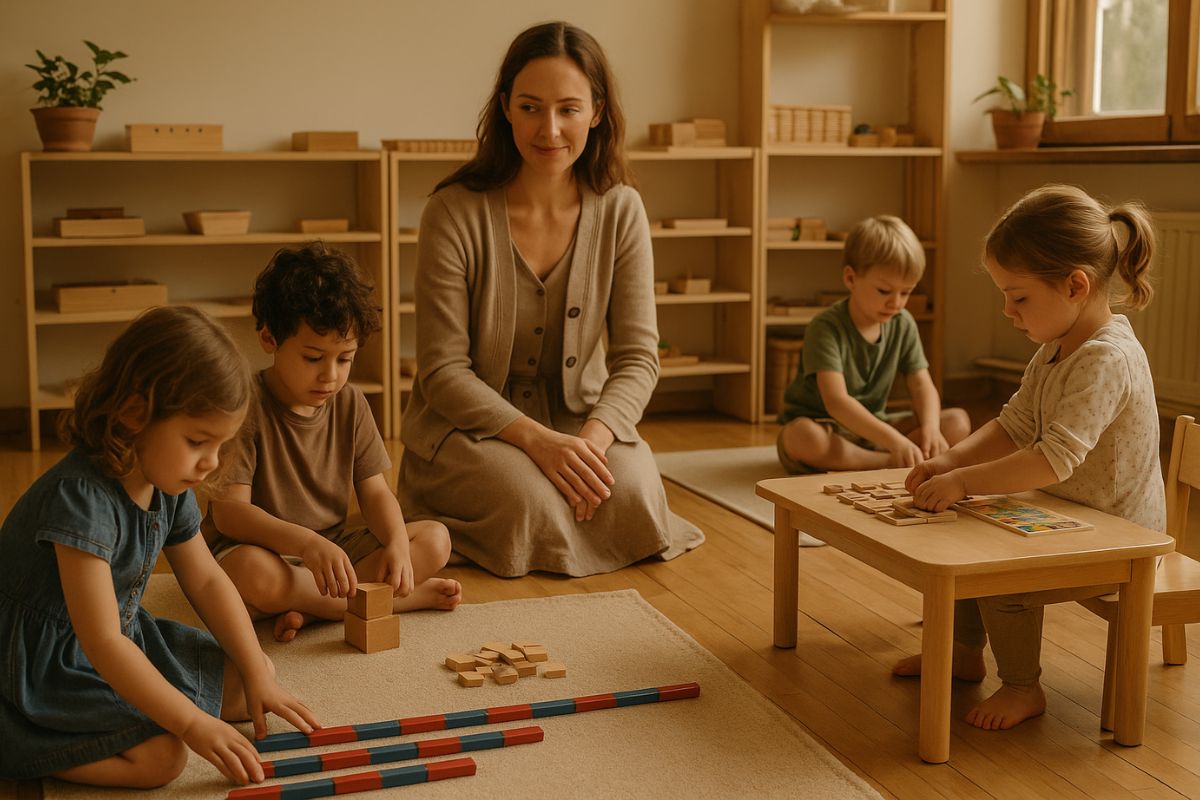Children are naturally curious, and Montessori education is built to nurture that curiosity. Instead of giving them answers, it gives them the space to think. In a Montessori classroom, problem solving is more than a skill—it’s part of daily life. And for many parents and educators, it’s one of the […]
Read More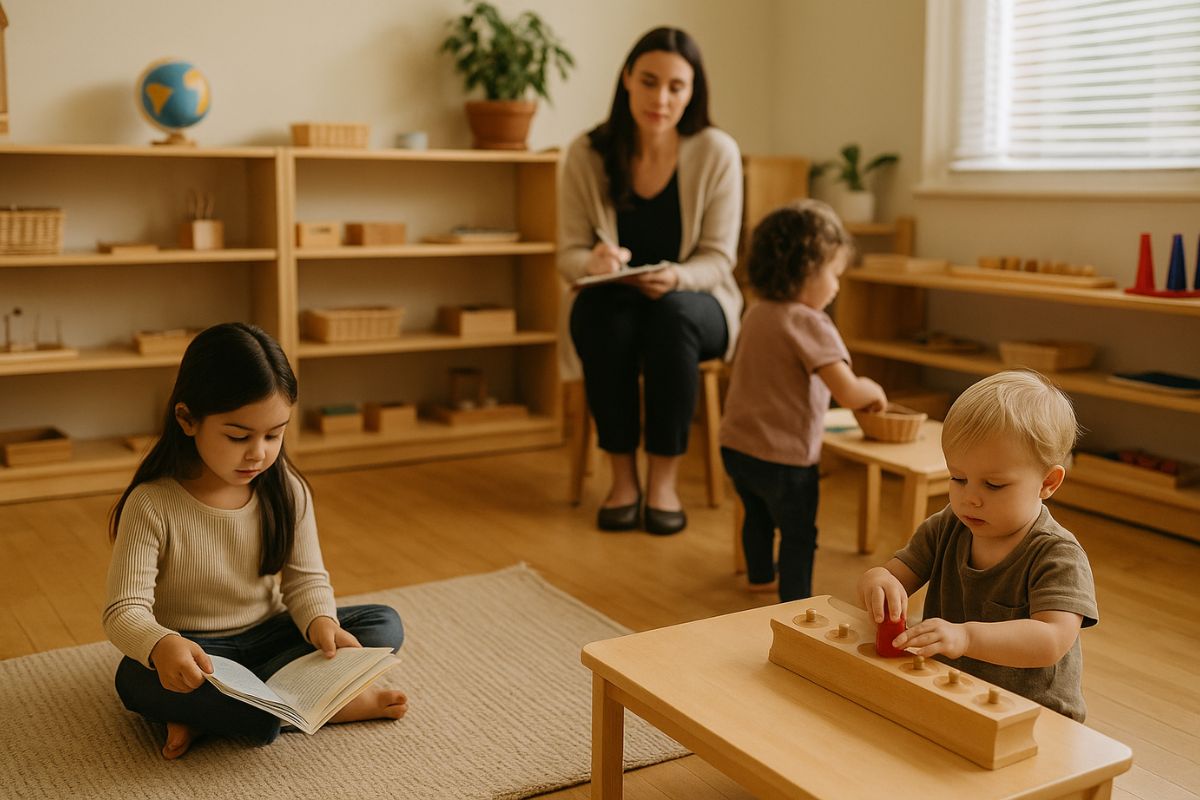
The Role of Observation in Montessori Classrooms
Every Montessori classroom offers a peaceful, prepared environment where children can grow in their own time. But behind this quiet rhythm is a careful, intentional practice—observation. It’s one of the most powerful tools a Montessori guide uses, yet it often goes unseen by those unfamiliar with the approach. For children […]
Read More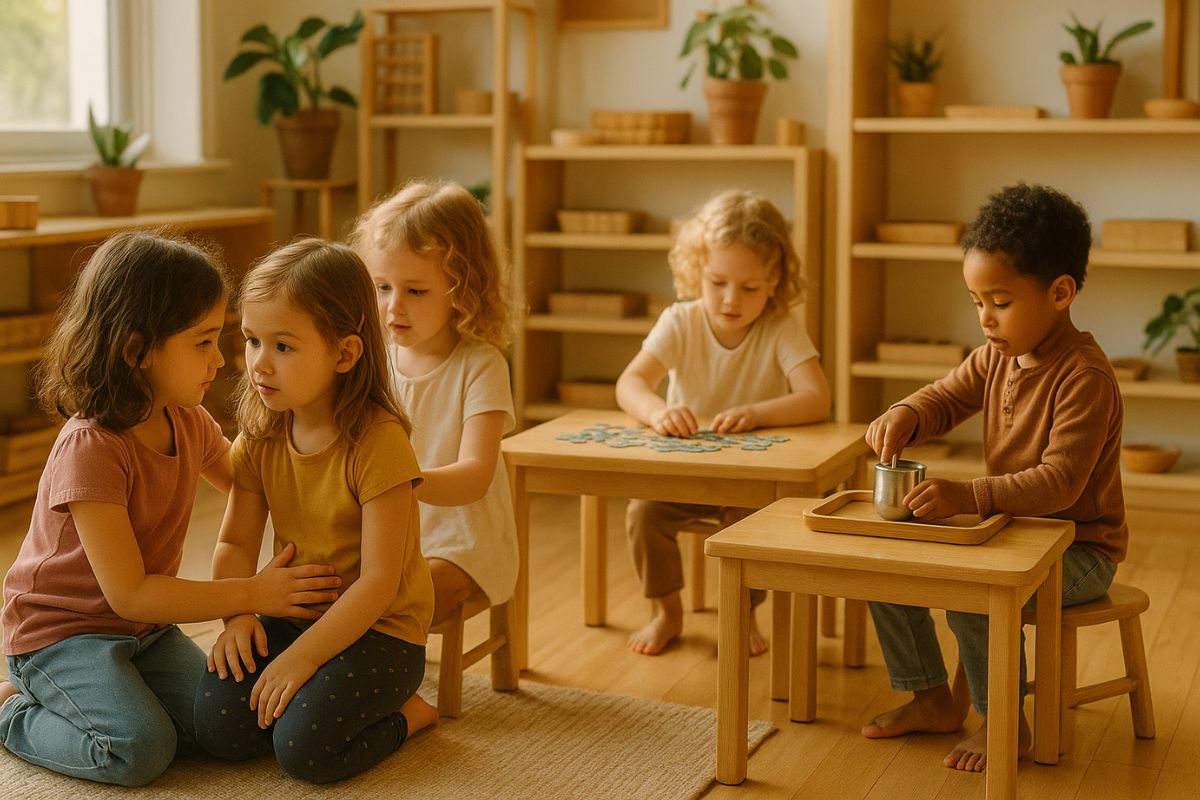
Social and Emotional Growth in Montessori
A child’s development reaches far beyond academics. The way they form friendships, solve conflicts, express feelings, and care for others shapes their daily lives and long-term well-being. In Montessori classrooms, social and emotional growth isn’t a separate subject. It’s woven into every part of the environment, from the way materials […]
Read More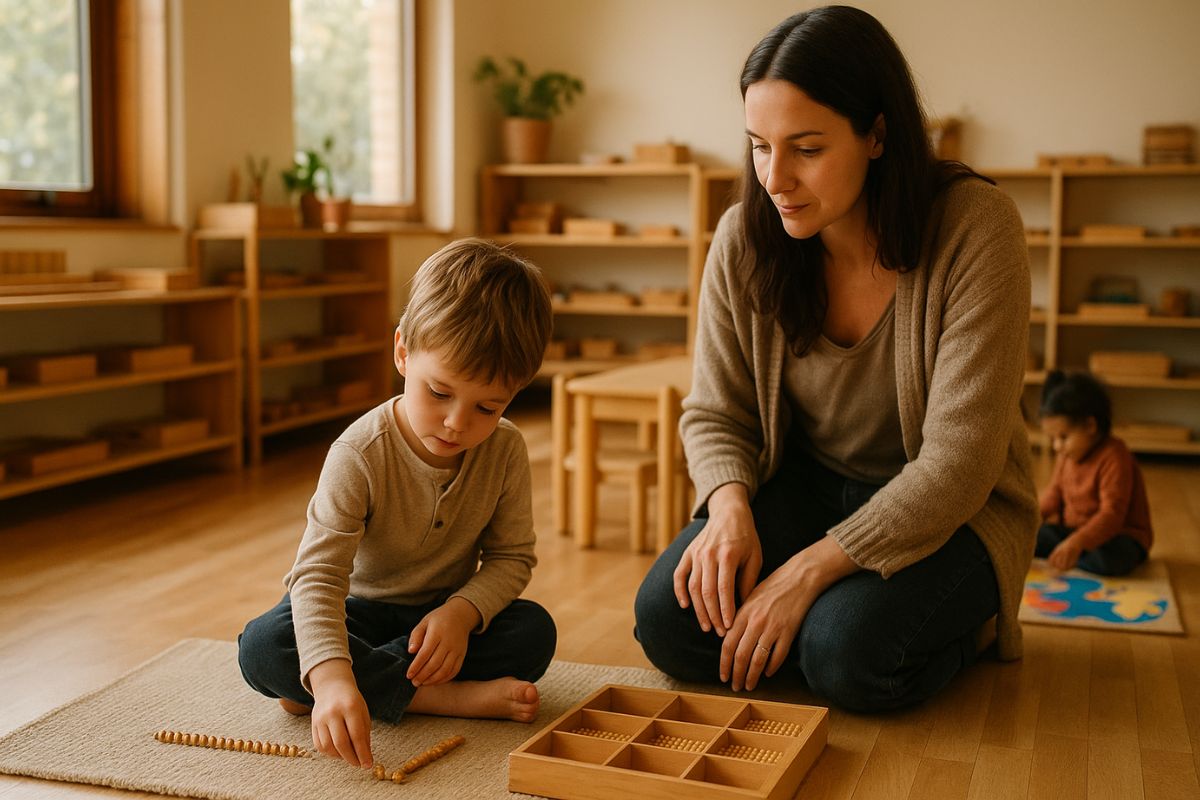
How Guides Facilitate Learning in Montessori
In every Montessori classroom, there’s someone who seems to be quietly watching, gently guiding, and offering just the right help at the right time. That person is the guide. Not a traditional teacher and not a passive observer, the Montessori guide plays a vital role in shaping a learning environment […]
Read More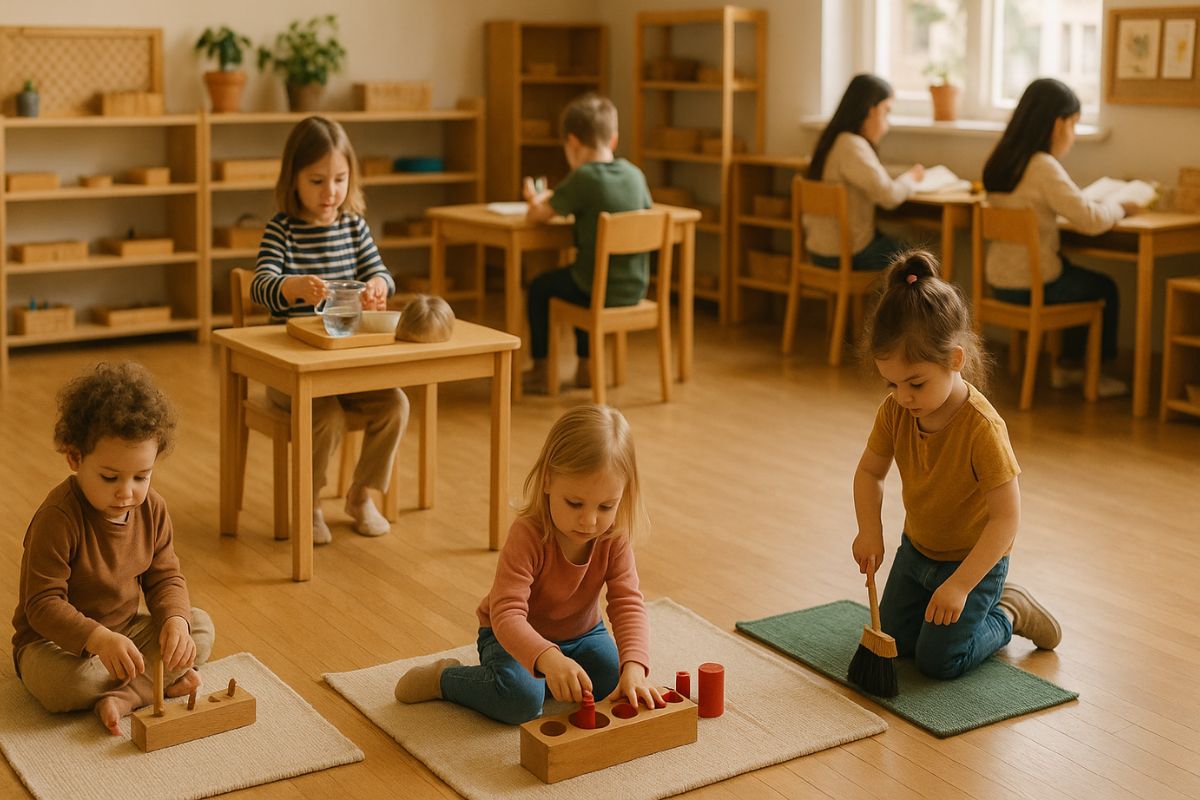
Daily Routines in Montessori for Each Age Group
Children thrive on rhythm. In Montessori environments, daily routines are more than just schedules—they’re intentional frameworks that support growth, independence, and focus. From the youngest toddlers to children preparing for adolescence, each routine reflects the needs of the child at that stage while nurturing their natural desire to learn. Montessori […]
Read More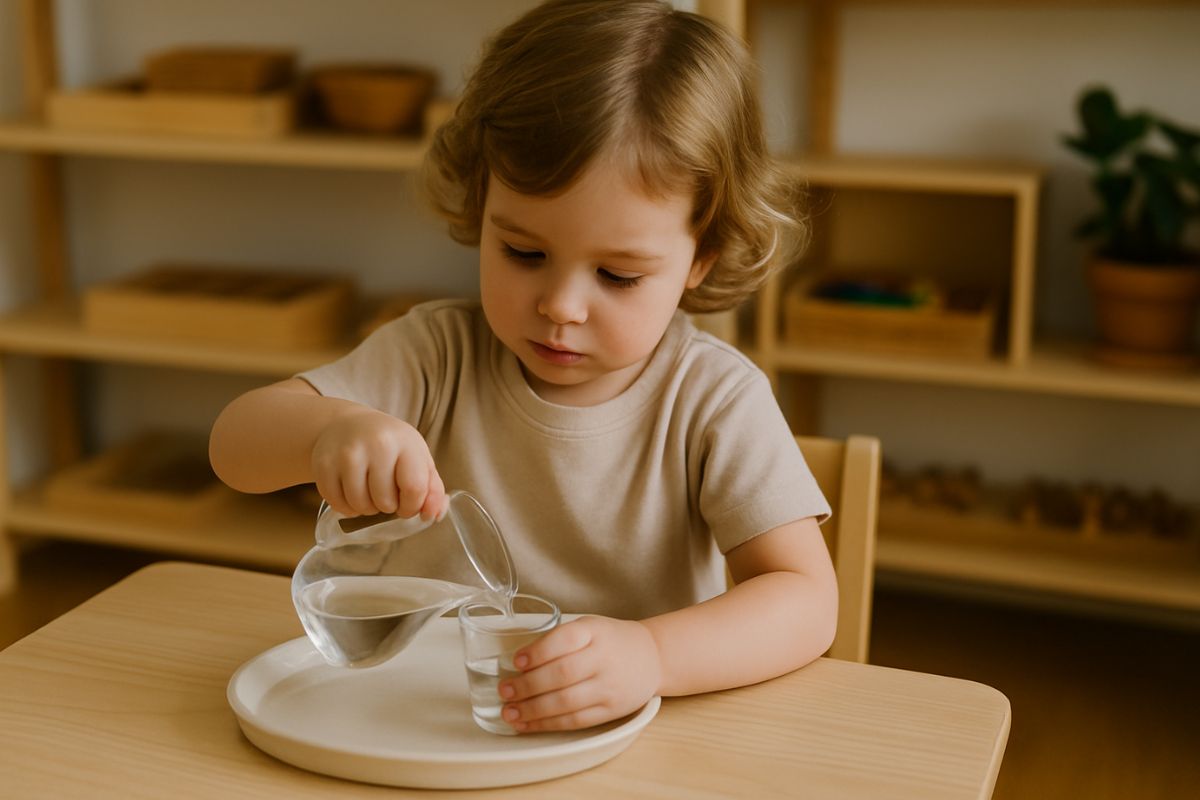
Montessori Process Over Product
In many traditional classrooms, a child’s success is judged by the final result. A perfect craft. A correct worksheet. A clean, finished project. But in Montessori education, what matters most is how the child got there. It’s not about the outcome. It’s about the journey. Focusing on the process helps […]
Read More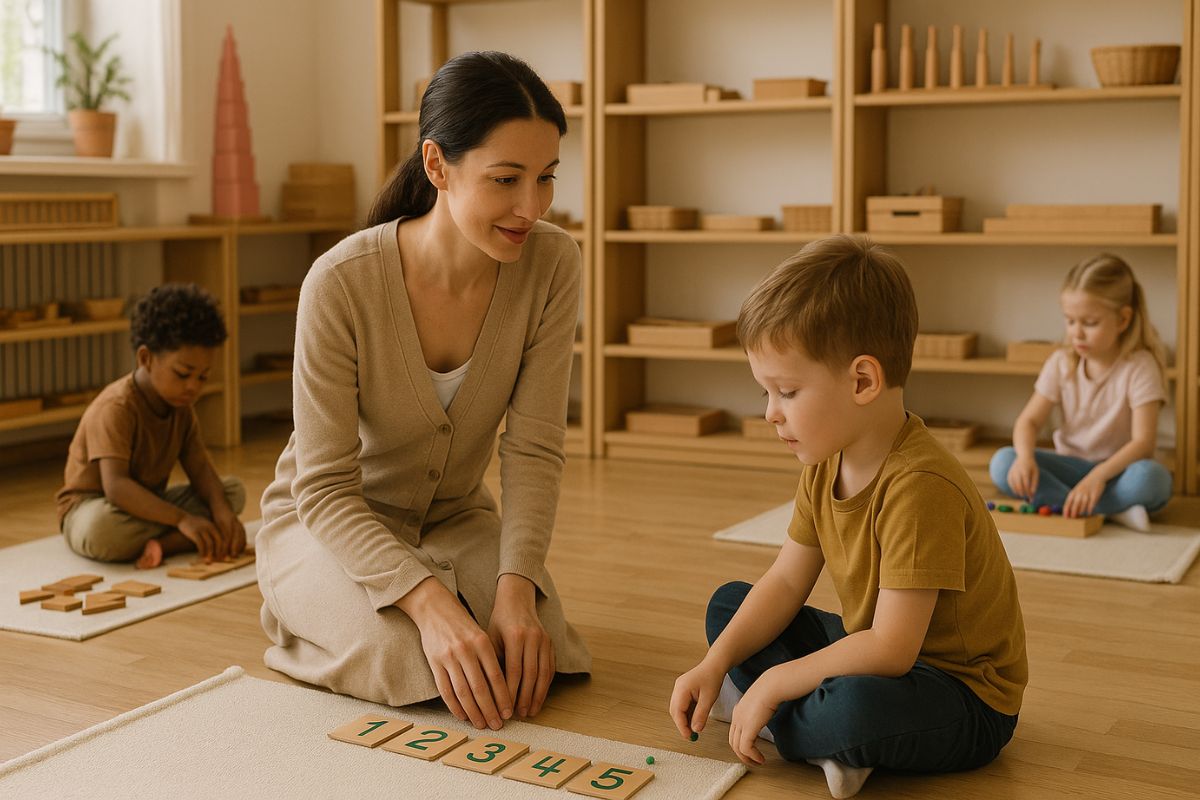
How Montessori Teachers Guide
In a Montessori classroom, the teacher doesn’t stand in front of the room giving lectures. Instead, they move quietly through the space, observing, offering help when needed, and guiding children toward purposeful work. Their role is gentle but deeply intentional. Montessori teachers are trained to watch closely, listen carefully, and […]
Read More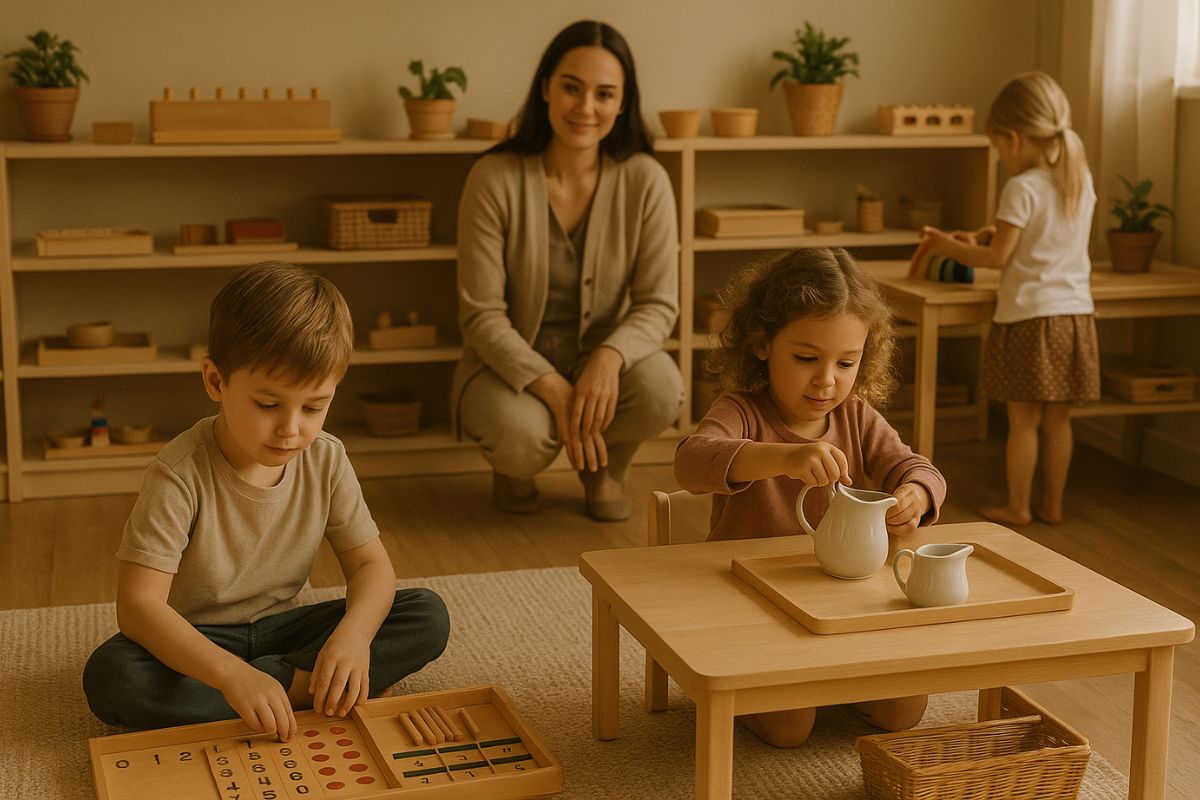
Hands-On Learning in Montessori
Children learn best by doing. That idea is at the heart of Montessori education. Instead of sitting still and listening all day, children in Montessori classrooms are invited to touch, move, build, and explore. Their hands are not idle—they are tools for thinking. Hands-on learning connects the body and the […]
Read More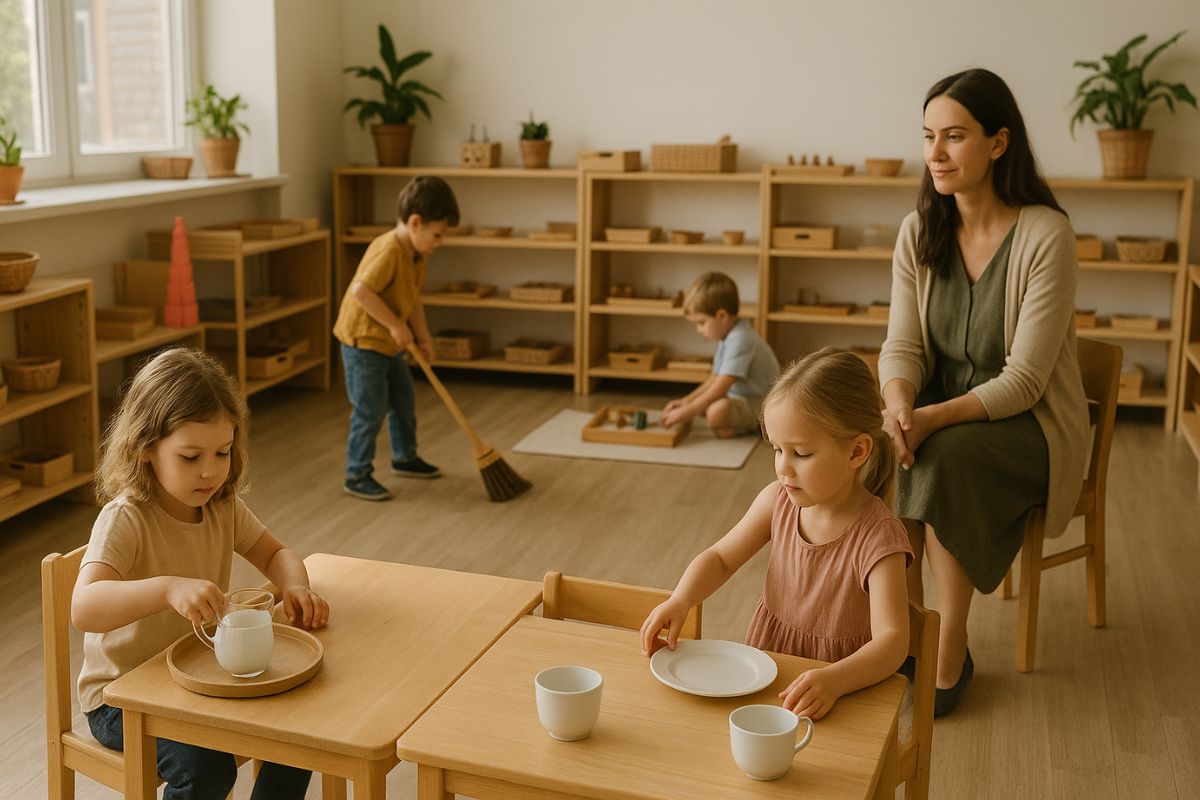
Montessori Approach to Discipline
Discipline is often misunderstood. Many think it means strict rules, punishments, or control. But in a Montessori setting, discipline looks very different. It’s not something imposed from the outside. It grows from within the child—developed through respect, choice, and self-awareness. The Montessori approach believes that children are capable of self-control […]
Read More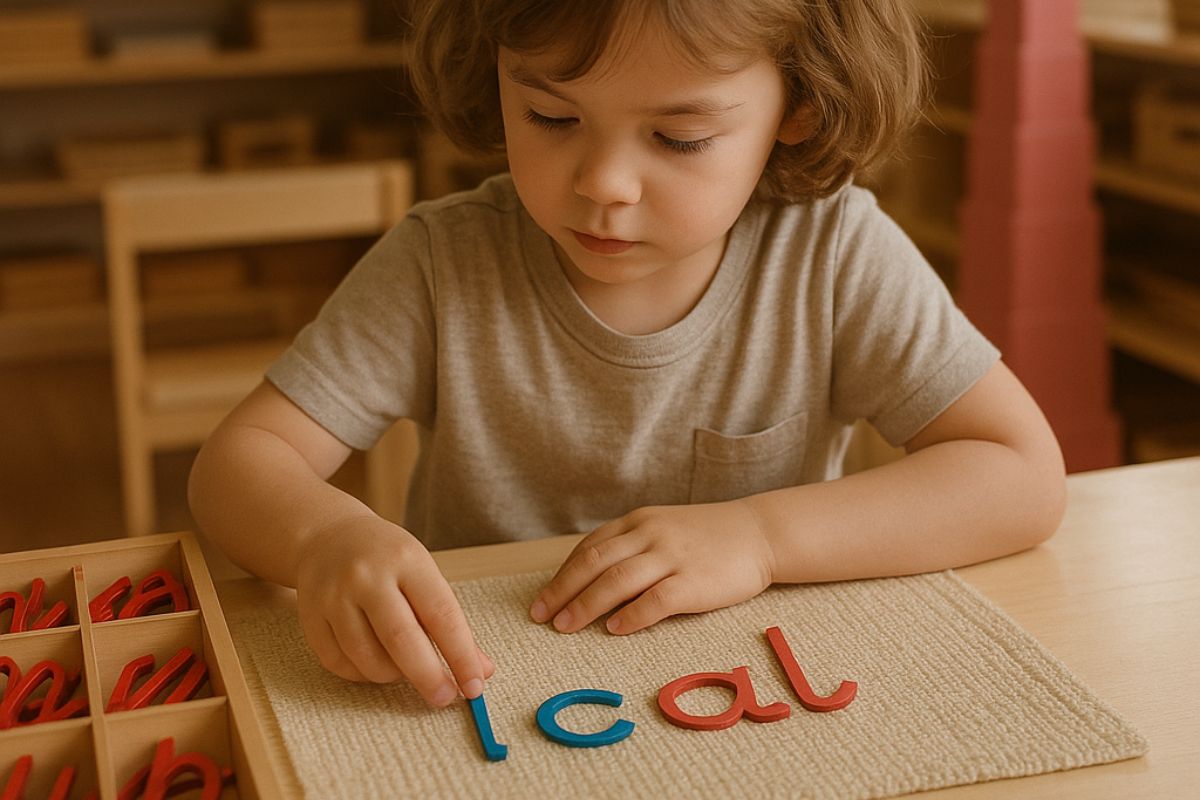
Self-Correction in Montessori Learning
One of the most powerful lessons in a Montessori classroom comes from what the child learns after making a mistake. In this environment, errors are not punished or fixed by the teacher right away. Instead, children are encouraged to notice mistakes, reflect, and try again. This process is called self-correction—and […]
Read More